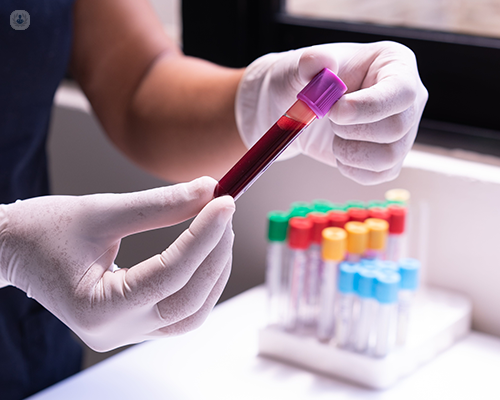Serotonin
What is analysed?
Serotonin is a neurotransmitter (messenger chemical) that plays a central role in the regulation of mood, digestion, and sleep. The serotonin test measures serotonin levels in the blood.

What does the result mean?
The result indicates the concentration of serotonin in the blood.
Why conduct the analysis?
The serotonin test is conducted to help diagnose conditions related to serotonin imbalance such as depression, generalised anxiety disorder, and irritable bowel syndrome (IBS). The analysis is also conducted to guide treatment, including the use of antidepressants.
When to conduct the analysis?
The serotonin test is conducted when symptoms of depression, generalised anxiety disorder, or IBS are observed. In addition, the analysis may also be conducted during treatment to evaluate the effectiveness and response of treatment.
What sample is required?
A blood sample is used for the analysis of serotonin levels. The blood is drawn from a vein, usually in the arm.
Is any prior preparation necessary?
Patients are recommended to fast for 8-12 hours before the blood sample is taken. In addition, patients should also inform a healthcare professional about any medications being taken.
How is it performed?
The collected blood sample is sent to a laboratory, where it is analysed using techniques such as high-performance liquid chromatography (HPLC) and enzyme-linked immunosorbent assay (ELISA) to quantify serotonin levels in the blood.
What are the normal values?
| Age group | Normal serotonin levels (ng/mL) |
|---|---|
| Children | 59 - 271 |
| Adults | 101 - 283 |
What does having altered values mean?
- Elevated levels: Raised serotonin levels indicate conditions such as serotonin syndrome, carcinoid syndrome, or certain tumours.
- Low levels: Reduced serotonin levels indicate conditions such as depression, generalised anxiety disorder, insomnia, or IBS.